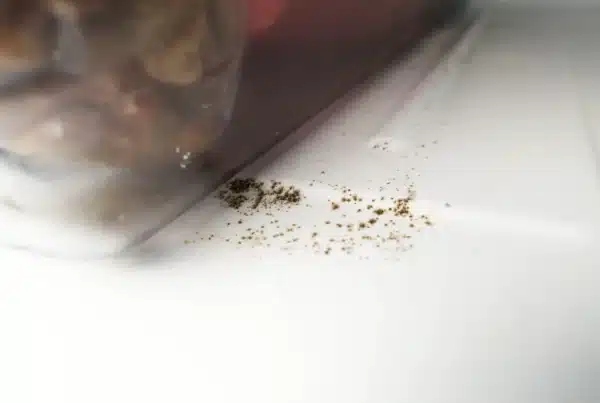
Adding a small backyard pool to your property is an exciting way to boost its value and transform your outdoor space into a personal oasis. Whether you’re planning to install a pool or already have one, understanding the benefits and responsibilities is essential.
As home inspectors, we see firsthand how a pool can impact your home’s safety, functionality, and long-term value. Let’s dive into everything you need to know!
The Benefits of a Small Backyard Pool
Small backyard pools are increasingly popular for good reasons. One of the biggest advantages is their ability to fit in tight spaces while still providing the same enjoyment as larger pools. For homeowners with limited yard space, a small pool offers the opportunity to enjoy swimming and relaxation without sacrificing the entire backyard. This makes them a great option for urban areas or smaller lots.
Additionally, a well-designed and properly maintained small pool can increase your property’s value. Homebuyers often find pools attractive, especially in warmer climates where outdoor living is a priority. Plus, small pools are more energy-efficient. They use less water, require smaller filtration systems, and are often cheaper to heat, making them an environmentally friendly and cost-effective choice.
With options for custom designs, from plunge pools to lap pools, you can create a pool that perfectly suits your lifestyle and aesthetic.
Key Considerations for a Small Backyard Pool
While the benefits of a small backyard pool are undeniable, there are several crucial factors to consider before installing one or purchasing a home with an existing pool. Proper planning and attention to these details will help you avoid complications and ensure your pool is safe, functional, and enjoyable for years to come.
- Zoning and Permits: Local zoning laws and building codes often dictate where you can place a pool on your property. Before installation, verify that your pool’s location complies with regulations for property lines, underground utilities, and easements. Neglecting this step could lead to fines, costly relocations, or even removal of the pool. Work with a professional contractor to navigate the permitting process and ensure all requirements are met.
- Safety Measures: Pools, even small ones, pose safety risks that must be addressed. Most municipalities require fencing with self-latching gates to prevent unauthorized access, particularly by children and pets. Consider additional safety features like pool covers, non-slip decking, and alarms that alert you if someone enters the water unexpectedly. These measures not only ensure compliance with local laws but also provide peace of mind for your family and guests.
- Maintenance Needs: While small pools require less maintenance than larger ones, they still need regular attention. Plan to clean the pool frequently, balance the water’s chemicals, and inspect equipment like pumps and filters. Regular upkeep ensures your pool remains clean and safe while extending the life of its components. Budget for maintenance supplies and potential repairs to avoid surprises later.
- Structural Inspections: If you’re buying a home with an existing pool, a professional inspection is essential. This ensures the pool’s structure is sound and free from issues like cracks, leaks, or faulty equipment. An inspection can also identify drainage problems or uneven decking that could pose safety risks. Knowing the pool’s condition upfront helps you make informed decisions and prevents unexpected expenses.
Popular Design Ideas for Small Backyard Pools
Pro Tips for Small Pool Maintenance
Keeping your small backyard pool in great shape doesn’t have to be difficult. With consistent care and smart practices, you can ensure it stays clean, safe, and enjoyable. Here’s how to do it:
- Winterize When Necessary: In colder climates, winterizing your pool protects it during the off-season. Lower the water level, add winterizing chemicals, and thoroughly clean the pool. Cover it securely with a durable cover to keep out debris and protect it from freezing temperatures. This extra step helps prevent costly damage.

- Test the Water Weekly: Regularly checking your pool’s pH and chlorine levels is essential. Balanced water prevents algae growth, skin irritation, and damage to your pool’s surfaces. Use a reliable testing kit to monitor levels and adjust as needed. This small step keeps the water clear and safe for swimming.
- Clean the Pool Regularly: Debris can quickly accumulate, so stay on top of cleaning. Skim the surface daily to remove leaves and bugs before they sink. Vacuum the pool floor weekly to eliminate dirt and sediment. Don’t forget to clean the filter regularly to maintain good circulation and extend the life of your equipment.
By following these steps, you can keep your small backyard pool in excellent condition year-round. Regular maintenance, paired with annual inspections, ensures your pool remains a safe and relaxing space for you and your family to enjoy. With just a little effort, your pool can provide years of fun and comfort.
Conclusion
A small backyard pool can be a fantastic addition to any home, offering relaxation, entertainment, and increased property value. However, proper planning, maintenance, and inspections are essential to ensure your investment is safe and long-lasting. Whether you’re installing a new pool or need an evaluation of an existing one, a professional home inspector can provide the expertise you need to keep your pool in great shape.
Considering a small backyard pool? Let our inspection team help you make the most of it with a thorough home evaluation and personalized advice. After all, your home—and pool—should be a place of enjoyment and security!




